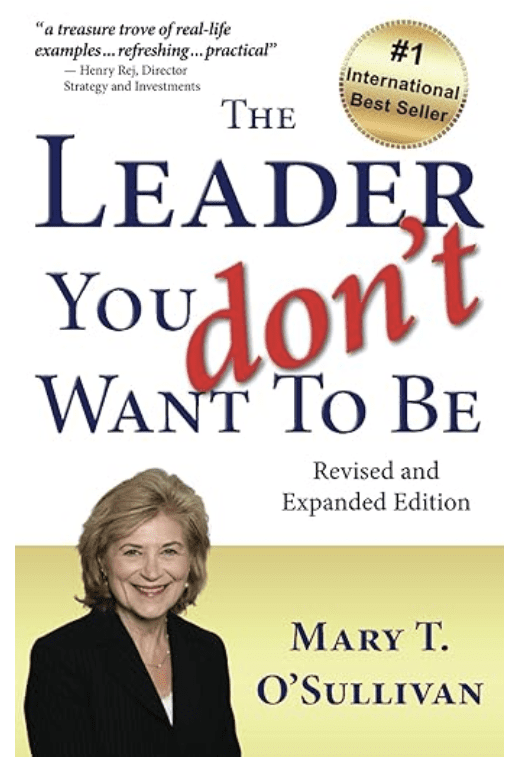Search Posts
Recent Posts
- Rhode Island Weather for June 5, 2025 – Jack Donnelly June 5, 2025
- RI Veterans: Did you know? 05.06.25 (Rental help, events, resources) – John A. Cianci June 5, 2025
- We Cook! Mill’s Tavern Rosemary-Lemon Statler Chicken, Yukon Golds, Haricot Vert and Dijon Demi June 5, 2025
- ICE arrests nearly 1,500 in Massachusetts. First part of “Operation Patriot” – Nantucket Current June 5, 2025
- Rhode Island Weather for June 4, 2025 – Jack Donnelly June 4, 2025
Categories
Subscribe!
Thanks for subscribing! Please check your email for further instructions.

Why DE&I programs are going away – Mary T. O’Sullivan
by Mary T. O’Sullivan, MSOL, contributing writer, business leadership
“As of July 2024, several companies have either cut or rebranded their diversity, equity, and inclusion (DEI) programs due to activist attacks, social media backlash, and legal challenges.” – CNBC
A monumentous, radical impact to diversity, equity, and inclusion, established by the United States Supreme Court in June 2023, forever altered an organization’s responsibility to uphold the nation’s affirmative action policies. Initiated by Executive Orders by Presidents Kennedy and Johnson, affirmative action was not without controversy. Over the years various legal cases have modified its definition, and eventually quotas for women and minorities were banned. The original intention of affirmative action allowed various minority groups to participate in opportunities otherwise closed to them, due to discrimination, especially in employment and education.
More recently, affirmative action has transformed into the institutionalization of the “values” of diversity, equity, and inclusion which today’s organizations incorporate into their culture and mission statements. Diversity, Equity and Inclusion became a driving force, a discipline unto itself, to ensure that people of all backgrounds are “welcomed and supported” within an organization. The ultimate goal of a DEI program is to create a more positive workplace, increase overall employee engagement, and improve the organization’s branding in order to attract and retain talent.
The backlash to enforcing DEI initiatives came as a result of the above-mentioned June 2023 Supreme Court ruling that stated, in the case of Harvard University, race “conscious” admissions policies were unconstitutional. The basis of the suit was Harvard’s discriminatory practices against Asian students in the admission process, passing over superiorly qualified Asian students in favor of other races to “balance” the composition of the student body. Currently, 14.4% of Harvard students are Asian.
With its roots in the 1960s, affirmative action policies have been integral to all private companies with 100 or more employees and have been so for the last 45 years. With the recent ruling, organizations have begun to rethink the efficacy of their DEI programs. Whether as a result of social media attacks, mission refocus, “changing business needs”, language changes, layoffs, restructuring, using DEI consultants, or simple “downplaying”, major companies are dropping the traditional emphasis on DEI.
The following companies have reduced or laid off their DEI staff and efforts:
- Tractor Supply Co.
- John Deere
- Microsoft
- Eli Lilly
- Molson Coors
- Best Buy Co.
- Zoom
- Snap
- Meta
- Tesla
- DoorDash
- Lyft
- Home Depot
- Wayfair
In fact, some companies now name DEI as a “risk factor” in their annual reports or have discontinued references to diversity goals in “regulatory filings”, proof to the government that they comply with all federal laws. According to the Washington Post, “DEI related job postings declined by 44% by mid 2023 compared to the same period in 2022”.
The unprecedented corporate departure from institutionalized DEI efforts has its roots in costly lawsuits, and perceived imposition of “political correctness”. Also, since 2023, individual state legislatures have introduced at least 65 or more anti-DEI bills, seemingly, making up their own rules for diversity, equity, and inclusion. In addition, independent lawsuits are being filed by outside groups, objecting to affirmative action, even though the 2023 ruling applies only to academic institutions.
Overall, the news is not so grim. Many companies are sticking to their DEI efforts and even expanding them. According to the Washington Post, “J.M. Smucker, Victoria’s Secret, Michaels, Moderna, Prudential and ConocoPhillips were among big corporations that expanded their DEI teams by 50 percent or more in 2023… packaged-food giant Conagra Brands and NASA both doubled the size of their DEI teams.”
Cristina Jimenez, head of DEI at RHR International, a leadership consulting firm, says that organizations on the whole are somewhat uncertain of the future of DEI in their organizations. She states, “but they understand if they don’t do something, their talent strategies, their culture, their ability to succeed is all at risk.” Over the years the enthusiasm for DEI initiatives has vacillated between resisting it and all out support. In these fraught and controversial times, the fact of discriminatory practices in many organizations remains. The research group, Business.Com, conducted an exhaustive search of 680 companies and found women and minorities underrepresented in key leadership roles within many sectors and organizations. In general, “56% of companies are “well below” the national workforce level for women, and for people of color, it’s 47% of companies.” So, it’s obvious, despite the 2023 decision, there is still work to be done.
And there is still an argument for maintaining the spirit if not the letter of DEI. According to a CNBC survey, “a large majority of those surveyed (78%) say it’s important to work at a company that makes diversity and inclusion a priority, and more than 50% consider it to be “very important.” And interestingly, “employees who were satisfied with their employers’ DEI efforts scored higher on the happiness index and reported greater satisfaction with their pay and opportunities for career advancement.” Further, a Deloitte survey found that younger workers, Gen Zs and Millennials are willing to go elsewhere if not satisfied that their company promotes DEI values and offers a sense of meaning and purpose.
Eventually, while DEI may be falling out of favor across many companies, it’s up to the leaders to take a long, hard look at the impact losing a solid DEI program: Talent, innovation, retention, and productivity are all boosted by a vigorous DEI plan coupled with policies and procedures. Benchmark against other companies who are thriving with a robust DEI plan in place. Ultimately, it’s been proven many times over, that DEI initiatives overwhelmingly grow the bottom line, regardless of legal decisions which may give leaders pause. Leaders want to grow their companies, it’s their profit, and their people will be happier and more loyal when they are supported by the leader, and his or her values and commitment to a more diverse, equitable, and inclusive society.
It’s the commitment to movement that matters. As CEOs, we are called to lead and to create momentum toward broad goals and directives. But how do we create momentum and direction if we are only standing still?” – Donald Thompson, CEO of The Diversity Movement
___

Connect with Mary:
Read all Mary’s columns here: https://rinewstoday.com/mary-t-osullivan-msol-pcc-shrm-scp/

Mary T. O’Sullivan, Master of Science, Organizational Leadership, International Coaching Federation Professional Certified Coach, Society of Human Resource Management, “Senior Certified Professional. Graduate Certificate in Executive and Professional Career Coaching, University of Texas at Dallas.
Member, Beta Gamma Sigma, the International Honor Society.
Advanced Studies in Education from Montclair University, SUNY Oswego and Syracuse University.
Mary is also a certified Six Sigma Specialist, Contract Specialist, IPT Leader and holds a Certificate in Essentials of Human Resource Management from SHRM.
